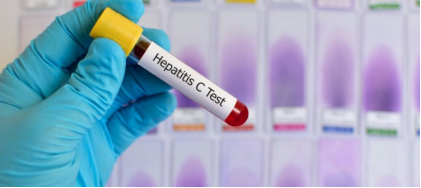Hepatitis C Revealed: Risks, Prevention and Modern Treatments
Hepatitis C is a viral infection that affects the liver and can cause both acute and chronic disease. In order to effectively treat and prevent this disease, it is important to understand its nature, transmission, symptoms and available treatments.
Hepatitis C is a viral infection that affects the liver and can cause both acute and chronic disease. In order to effectively treat and prevent this disease, it is important to understand its nature, transmission, symptoms and available treatments.

What is Hepatitis C?
Hepatitis C is a liver disease caused by the hepatitis C virus (HCV). This virus can cause both acute and chronic infection, the latter of which can lead to severe liver damage, cirrhosis or liver cancer. This infection is often asymptomatic, so it is difficult to diagnose without specific tests.
Difference between Hepatitis C and other types of hepatitis
| Characteristics | Hepatitis A | Hepatitis B | Hepatitis C |
| Causes | Hepatitis A virus (HAV) | Hepatitis B virus (HBV) | Hepatitis C virus (HCV) |
| Transmission | Fecal-oral | Blood, sexual contact, perinatal | Blood, mainly by injection |
| Vaccine availability | Yes | Yes | No |
| Chronic infection | No | Yes (chronic in some cases) | Yes |
| Common symptoms | Fatigue, nausea, stomach pain | Jaundice, fatigue, abdominal pain | Often asymptomatic; fatigue, jaundice |
| Treatment | Supportive care | Antiviral drugs, supportive care | Antiviral |
How is Hepatitis C spread?
Hepatitis C is spread primarily through blood-to-blood contact. Common routes of transmission are:
- Sharing needles or other equipment used to inject drugs.
- Contaminated blood transfusions or organ transplants (less common today due to screening).
- Unsafe medical practices, such as non-sterile injections.
- Vertical transmission from mother to child at birth.
- Unprotected sexual contact with an infected person (less common).
Understanding these transmission routes is essential to preventing the spread of the HCV and implementing effective public health strategies.
Symptoms of Hepatitis C
Hepatitis C often has no symptoms in its early stages. However, if symptoms do occur, they may include:
- Fatigue
- Jaundice (yellowing of the skin and eyes)
- Dark urine
- Stomach pain
- Loss of appetite
- Nausea
- Joint pain
Chronic hepatitis C can lead to more serious health problems, such as cirrhosis and liver cancer. Regular screening and early diagnosis are essential to effectively treat the disease.
Who is at risk for hepatitis C?
Certain groups of people are at higher risk for hepatitis C, including:
- People who inject drugs
- People who received a blood transfusion or organ transplant before 1992
- Health workers who have been exposed to infected blood
- Infants born to mothers with hepatitis C
- People with HIV infection
- People on long-term hemodialysis
Knowing these risk factors can help determine who should be tested for HCV regularly.
Prevention and treatment of hepatitis C
Prevention
Preventing hepatitis C involves reducing your risk of contracting the virus. Effective strategies include:
- Avoiding the use of shared needles and injection equipment.
- Ensuring that blood and blood products are tested before transfusion.
- Practicing safe sex, although sexual transmission is less common.
- Adhering to strict hygiene and disinfection protocols in healthcare facilities.
Treatment
Over the years, treatment for hepatitis C has improved dramatically. Antiviral medications can cure more than 95% of cases, reduce the risk of complications, and prevent disease progression. Treatment plans typically include:
- Direct-acting antivirals (DAAs): These drugs target specific steps in the HCV life cycle and are highly effective.
- Regularly monitoring liver health and viral load.
- Making lifestyle changes, such as avoiding alcohol and following a healthy diet, to support liver function.
Successful treatment can achieve a complete cure, known as a sustained virological response (SVR), where the virus is no longer detectable in the blood.
Q&A
Q: Can hepatitis C be cured?
A: Yes, modern antiviral treatments can cure more than 95% of hepatitis C infections.
Q: Is there a vaccine for hepatitis C?
A: No, there is currently no vaccine for hepatitis C. Prevention focuses on reducing exposure to the virus.
Q: How can I tell if I have hepatitis C?
A: A special blood test is needed to diagnose hepatitis C. If you are at risk, talk to your doctor about getting tested.
Q: What happens if hepatitis C is untreated?
A: If left untreated, chronic hepatitis C can lead to cirrhosis, liver cancer, and liver failure. Early diagnosis and treatment are critical.
Q: How effective is hepatitis C treatment?
A: Treatment with direct-acting antiviral drugs is very effective, with a cure rate of over 95%.
Q: Can I get hepatitis C again after treatment?
A: Yes, it is possible to get hepatitis C again, even after successful treatment. It is important to maintain preventive measures.